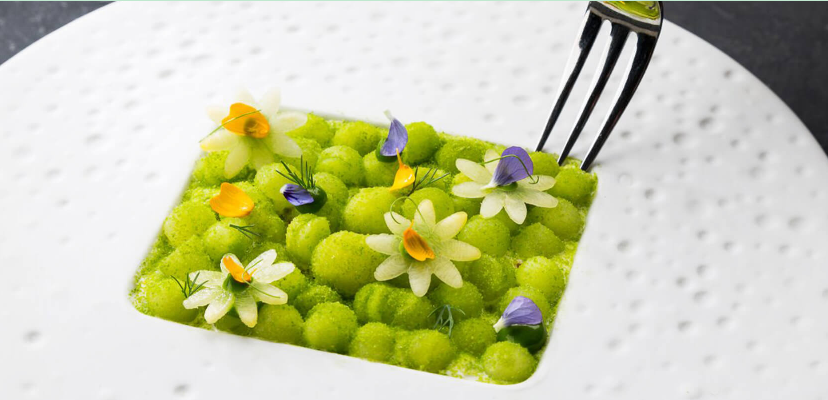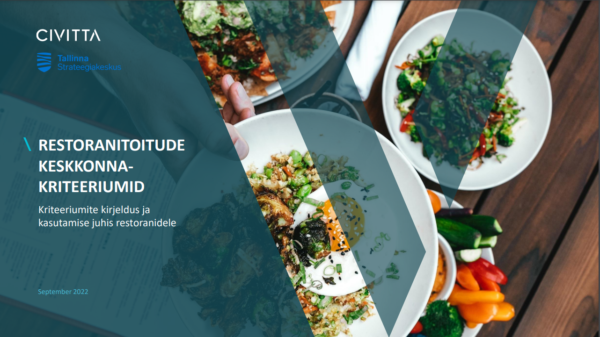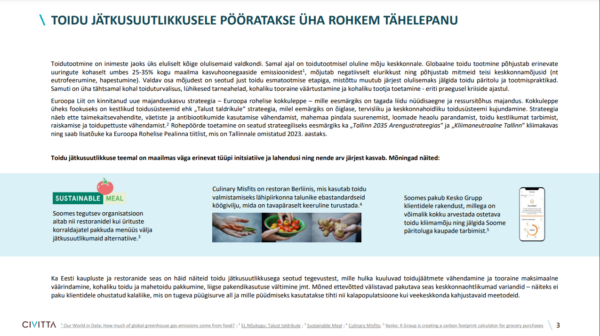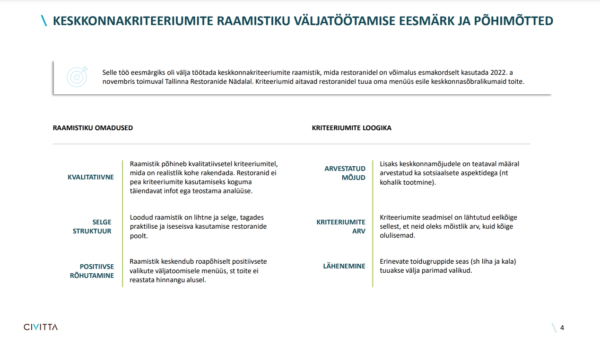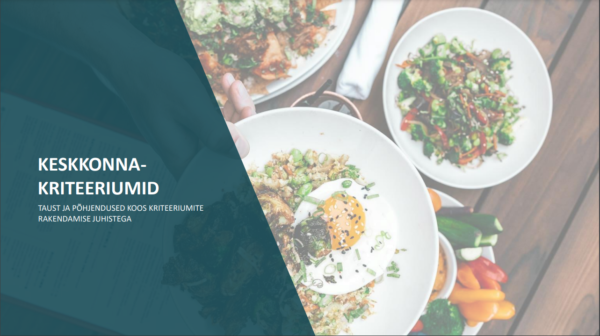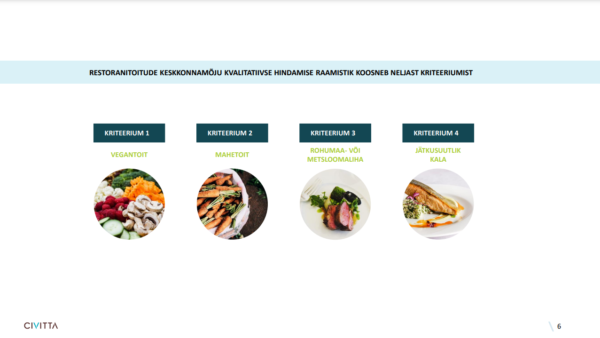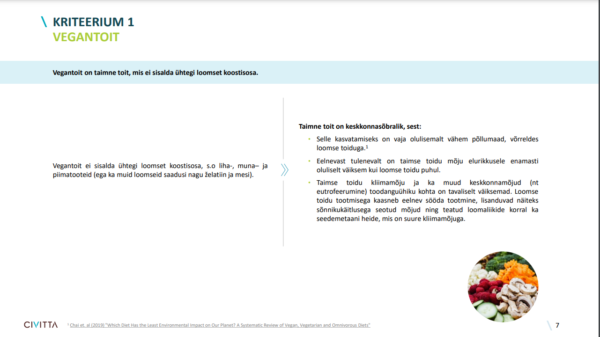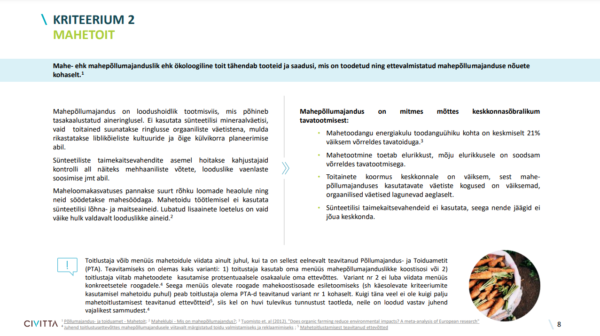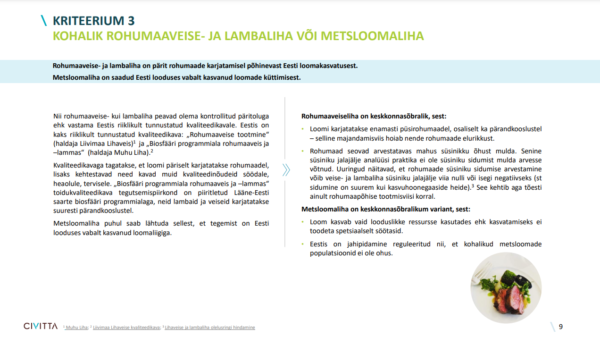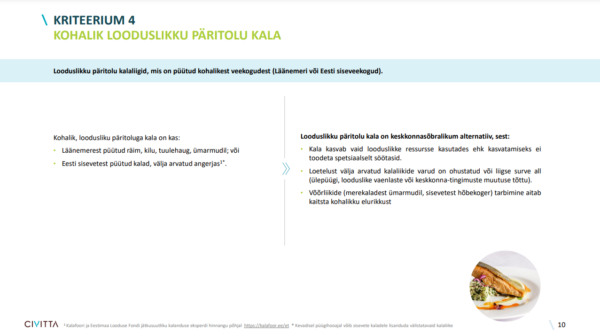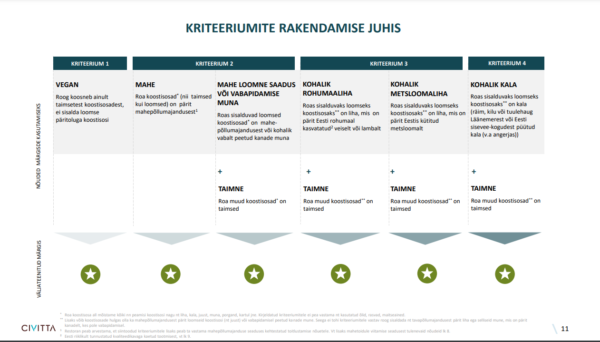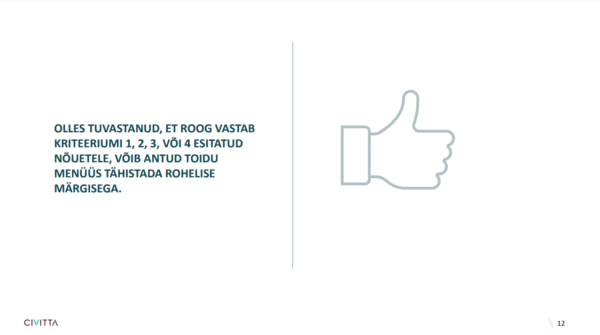Tallinn developed environmentally friendly food criteria
As part of the Tallinn – European Green Capital 2023 initiative, Tallinn Strategy Center together with Civitta have developed environmental criteria for restaurant food and to highlight those meals green labels were awarded to environmentally friendly food for the first time during the Tallinn Restaurant Week. Foods that met at least one criterion received the label: vegan food, organic food, grass-fed or wild animal meat, sustainable fish.
The aim is to pay more and more attention to the importance of environmentally friendly decisions in food culture. As the Europen Green Capital 2023, Tallinn will continue to encourage restaurants to adopt the criteria and hopes that people will increasingly value the environmentally friendly food offered to them. You can find the environmental criteria for restaurant food from this photogallery (in Estonian).
“We are happy to see that Tallinn Restaurant Week also values organic and local produce this year. One of the main goals of our restaurant is to inspire the rest of the world and, of course, other restaurants to make sustainable and more well-thought-out choices through their activities. We have the same sustainable values and that’s why our decision to participate in this initiative was quick and easy,“ said Peeter Pihel, Fotografiska’s head chef.
Out of the 64 restaurants in Tallinn that have submitted their menus to Restaurant Week, 13 restaurants offer food marked with the green label: Lee, Fotografiska, ÜLO, Oasis Restaurant, Rudolf, Salt, Horisont Restaurant & Bar, City Grill House, Lendav Maaler, Ocean 11, Orangerie , Smak and La Cucina.
The owner of Restaurant Lee, Kristjan Peäske, who also contributed to the development of the green label himself, believes that making decisions that save the environment in food culture is not just a trend that comes and goes, but a real change in the way people think. “I sincerely believe that people will understand that we can’t carry on in the same way and we have to start living more sustainably. This understanding is in its infancy, but now a so-called critical mass is being cultivated, which is growing and growing, and soon there will be a change in public opinon.”
In this way, Peäske encourages more and new restaurants to use environmentally friendly solutions and hopes that the clients will value environmentally friendly restaurant dishes more.
“The more sustainable options there are, the more certain it is that the consumer will also be able to notice and appreciate them. It is the restaurants that play an important role here in shaping the taste habits of the clients and thereby improving the world in their own way,” said Miina Saak, CEO of the ÜLO restaurant.
The European Green Deal and its “Farm to Fork” strategy, which aims to create a fair, healthy and environmentally friendly food system, was an inspiration for awarding the Green Label.
Supporting the green transformation and fostering environmental sustainability is also set as a strategic goal in Tallinn’s 2035 Development Strategy and in Tallinn’s Climate Plan, and will also receive an additional boost from Tallinn holding the European Green Capital title for the year of 2023. Thus, the development of environmental criteria for restaurants, as well as, for example, a guide for environmentally friendly events, even if seemingly small actions, are steps towards a broader sustainable thinking and a more environmentally friendly future.

